Swapping snorkel and mask for knife and fork
Discovering Pacific marine life on a plate (a little guiltily), supporting Palestine through romance, and a fancy Fijian coconut chocolate.
Nau mai, haere mai. Welcome to The Boil Up, The Spinoff’s weekly food newsletter. This edition is by The Spinoff staff writer Gabi Lardies. It’s lovely to have you here!
The first thing I packed for my trip to Fiji was a snorkel and mask I found in a cupboard at my flat. I imagined hours spent floating above colourful reefs of coral, sponges and funky sea weeds, watching tropical fish dart around nibbling at things. As it turns out, there’s not much snorkelling to be done around resorts on Fiji’s main island, and when you’re being hosted by one (thanks Marriott!), they are keen to keep you onsite, busy with resort activities. The most important of these is eating. Many hours are set aside each day to outlaw hunger. And so I found the sea life on my plate rather than through my borrowed mask.
There was fresh tuna tartare; lightly seared tuna; baby octopus smaller than my palm in a mystery buffet casserole; a scallop, in its shell, in parmesan sauce; seared scallops drizzled with green sauce; long octopus legs chargrilled; grilled crayfish tail; grilled mahimahi; mahimahi poached in coconut cream; prawn balls coated with coconut flakes and deep fried; lobster kokoda, kingfish kokoda, tuna kokoda, mahimahi kokoda. I was there for four nights and in that time I ate more sea creatures than I ever have before.
It was not without guilt. Unfortunately, my boyfriend is a marine ecologist, which instantly wins him points at social occasions (“that was my dream job as a kid,” says every beautiful woman ever) and has kept me, for five years, unable to eat my signature dish of canned tuna on rice. We do not eat any fish unless we catch it ourselves. It's not because we think that fish have feelings, but because whole ecosystems are collapsing, and that is a worry.
In Aotearoa marine conservation is facing a new, well, 64-year-old, threat – Shane Jones. Our minister for oceans and fisheries has long, strong links to the fishing industry and has received thousands, likely tens of thousands, of dollars in donations from fishing companies. Last week at the South Pacific high seas forum, he stressed that fishermen’s jobs are his priority. He blocked a proposal that would restrict trawling over wildlife hotspots on underwater mountains in the South Pacific. Jones has his eye on the Hauraki Gulf. “I’ve watched a relentless effort to try to destroy the commercial fishing industry in the broader Hauraki Gulf,” he said in December. Right now, there’s legislation before parliament to increase the protected areas there. It’s been more than a decade in the making, a mammoth effort by scientists, iwi, and policymakers, and Jones’ comments suggest he won’t let it pass.
Back in Fiji, my guilt was quelled, a little, by our hosts telling us the fish are bought directly from local fishermen. As I enjoyed the delectables I imagined small-scale fishing, with no bycatch, and no tangled nets left behind. Later I found out that one resort goes through 12,000 eggs a day, which made me wonder about my assumptions. We had an hour's slot to meet a fisherman on our schedule, but he fell sick, so we ate more fish instead.
One dish that kept making appearances in different iterations was kokoda, Fijian raw fish salad. It's considered Fiji’s national dish, and one of my hosts said it's often eaten at home on Sundays with the family. In other words, it's the Sunday roast of Fiji. The fish isn’t exactly raw, it's cooked by leaving it in acid (lemon juice or white vinegar) for a few hours. It is delicious, and not hard to make. Perhaps it will replace canned tuna on rice as my signature dish.
I have stolen the following recipe from a cooking class at Marriott Resort Momi Bay. Is this a traditional version? Probably not – tomatoes don’t grow well in Fiji, and nor do onions. If you’re eating them there, it's likely they’re from Aotearoa, so I guess it's the perfect recipe for us!
Momi Bay kokoda
(makes 2 small portions)
80g fish fillet
lemons
½ tomato
½ onion
½ red capsicum
½ green capsicum
a little fresh chilli, finely chopped
80ml coconut cream
Cut the fish into 1cm cubes, put it in a little bowl and cover in lemon juice (if you don’t have lemon, use white vinegar). Cover the bowl and let sit for three hours.
After marinating, the fish will be white, as if cooked. Rinse the lemon off.
Dice the veges, mix with the fish and coconut cream in a bowl and season with salt and pepper. Add fresh lemon juice and chilli to taste.
But which fish should I use?
Not snapper, please. We’ve been going way too hard on it for way too long and its populations are plummeting. If you’re buying fish, Forest & Bird put a guide together a few years ago. From the best options I’d suggest kahawai, albacore tuna or skipjack tuna for kokoda. If you’re not making kokoda and just want to taste the ocean, green-lipped mussels are sustainable, yum and cheap!
I don’t want to eat fish!
You can still eat kokoda. Substitute the fish with canned palm hearts. They’re my mum's absolute favourite. I find the brine can be a little too salty so I always rinse them thoroughly. You can give them an oceany flavour by adding a bit of nori.
Here for a knockout season, BurgerFuel has drafted the ultimate GOAT of burger creations. Move over Mahomes, the Iron Rebel is in town for a limited time only. This halftime heavy hitter has a 100% pure grass-fed NZ beef patty stacked with slow-cooked smoked pulled beef, marinated in a sticky BBQ sauce for a flavour touchdown. Teamed up with melted cheddar, mesclun and BurgerFuel free-range aioli, the Iron Rebel is a feast fit for a linebacker. Don’t stay on the bench, head into BurgerFuel to tackle this limited time only burger now!
Weekly bites
Will you free my Palestine? A handful of restaurants in Tāmaki Makaurau have banded together to support ReliefAid, a charity getting food and water to people in Gaza through their Valentine's Day sales. On the menu is Rose’s Dining Room, Ima Cuisine, Bali Nights, Burnt Butter Diner, and more. Book a meal to have with a loved one on February 14 to show your love to Palestinian people. On a related note, if you’re missing Charlotte’s writing, now is the time to revisit her ode to Valentine’s Day.
Finally, one answer to why olive oil is so expensive. Growing up, we only used it for dressing salads and pasta, and canola oil served most of our other needs. When I started flatting I was surprised to see how many people use it for everything. Recently, buying a bottle has become even more painful – last year, the price of olive oil hit a 26-year high globally. Fire, drought and climate change caused problems to the biggest producers. Locally, Cyclone Gabrielle affected olive oil – last year we produced over a third less than in 2022. Even more devastating are the videos of the IDF destroying Palestinian olive orchards while the farmers beg for them to take their lives instead.
Sara Lee saved! Last year Sara Lee, maker of the first cheesecake I ever tried, went into voluntary administration. But ABC reported last week that Sara Lee's Australian and New Zealand businesses are being sold to a private company owned by Klark and Brooke Quinn. As a result, 200 people will keep their jobs. The Quinn family has previously bought out Darrell Lea, an Australian confectionery company, and turned it around. Their ownership, expected to be final in the next few weeks, will likely mean the cheesecakes will keep coming.
The War for Wellington is being funded with support from The Spinoff Members
If you think it’s important that Wellington becomes a modern, fit-for-purpose city that can live up to its potential, we would love you to become a member, or donate, and help us out. If your business is interested in supporting our Wellington coverage, we'd love to chat. Sign up to receive our weekly War for Wellington newsletter, written by the Spinoff's Wellington editor, Joel MacManus.
Snack of the week
Fijiana Cacao toasted island coconut dark milk chocolate, $17.80 for 55g from My Fiji Store. I love coconut and chocolate and have always wondered what the Whittaker’s coconut block might taste like with dark chocolate, so when I saw this at a Fijian shop, I knew I had to try it. Sadly, there was nowhere near as much coconut – trying to taste it was like spotting stars on a cloudy evening. The chocolate itself was good, dark and silky with a rich flavour, but without the coconut taste, it is missing a point of difference. I guess for the price I was expecting a bold, confident flavour. I loved the packaging of these bars. The brown craft paper unfolds to a sheet of A4 – simple and genius. The papercraft is a little clue that the founders were once tourists from Japan, who fell in love with Fiji and moved there to start a Japanese restaurant. On the paper is a story of how cacao got to Fiji in 1883 – Lord Kimberly ordered the Royal Botanical Garden of England to ship Trinidad cacao seeds there. The cacao in these bars is the descendant of those seeds. 7/10 – it’s a nice little treat or present, but I’d like to see the coconut shine.
Mā te wā,
Gabi




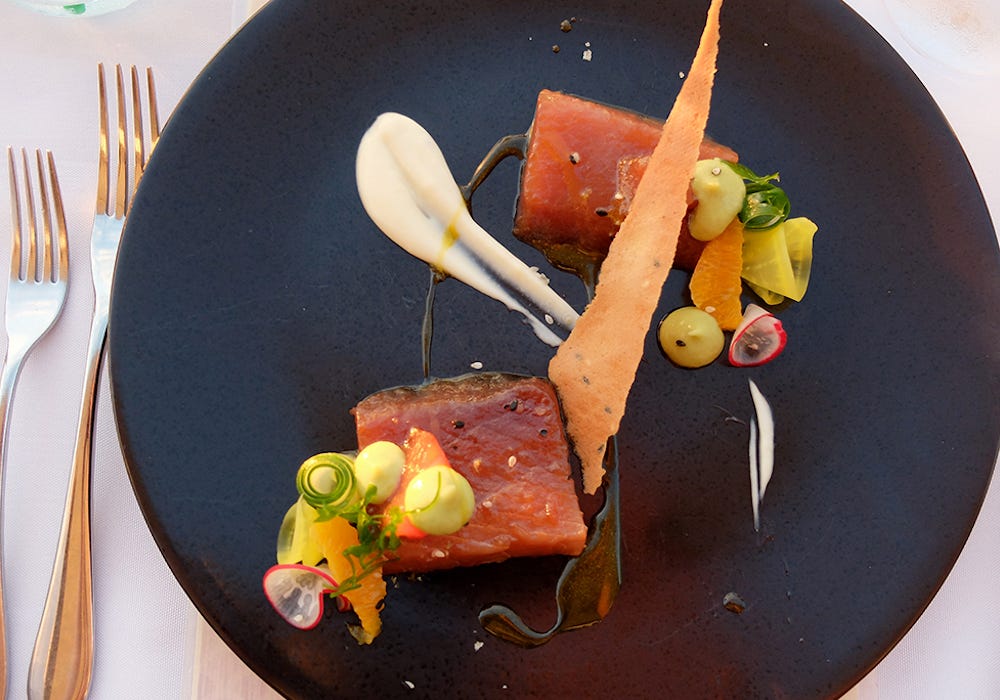
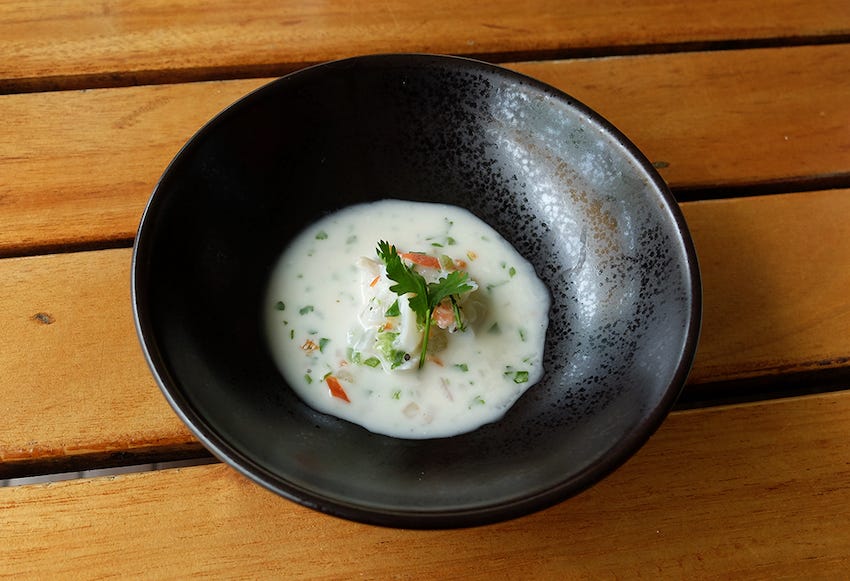
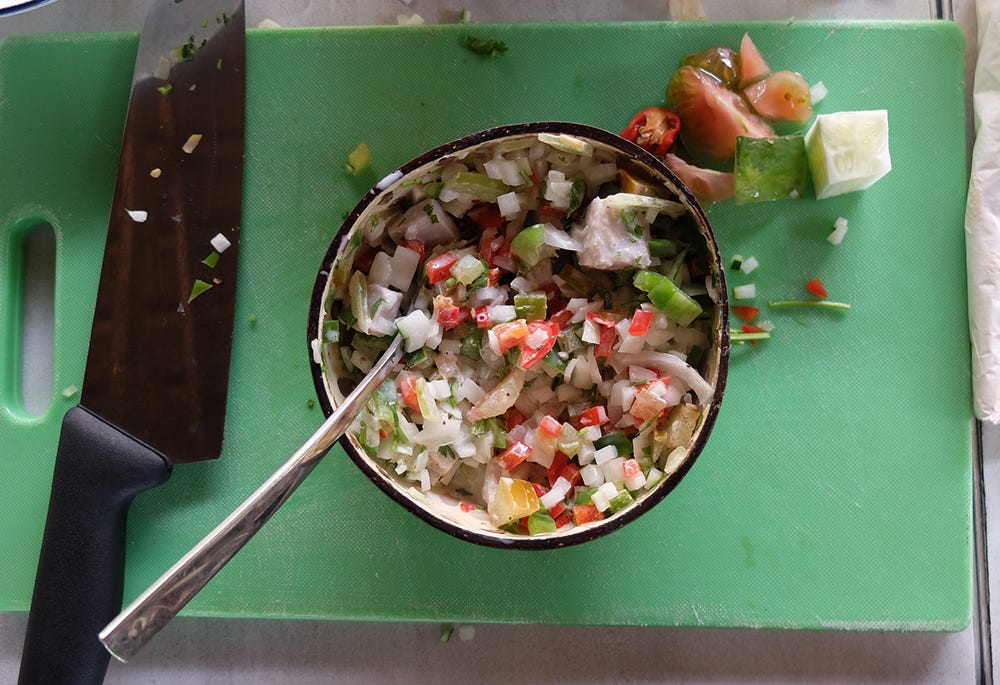

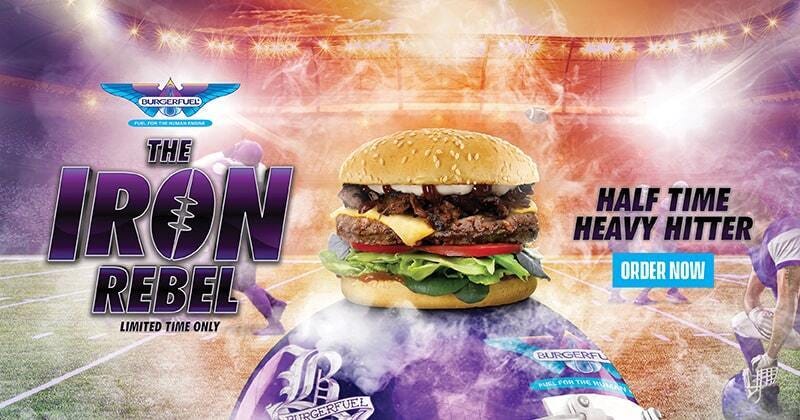






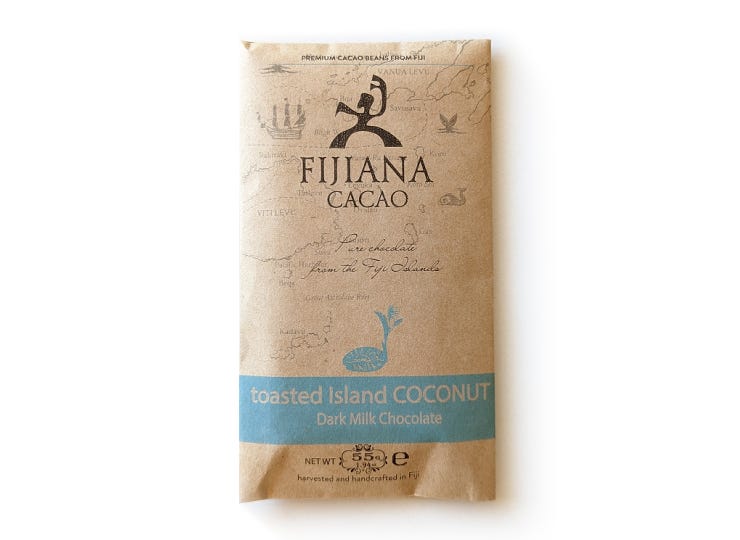


Fish DO have feelings - read "What a Fish Knows" by Jonathan Balcombe. And how anybody could eat an octopus is beyond my comprehension. They are very intelligent, have personalities, likes and dislikes in the same way as so-called "higher order" animals (read "The Soul of an Octopus", if you don't believe me.). Please can you balance this column with more plant-based meals to help our poor, long-suffering planet and its unfortunate inhabitants who are so often only regarded as food?